McGurk's Bar bombing merits new inquests, says attorney general
- Published
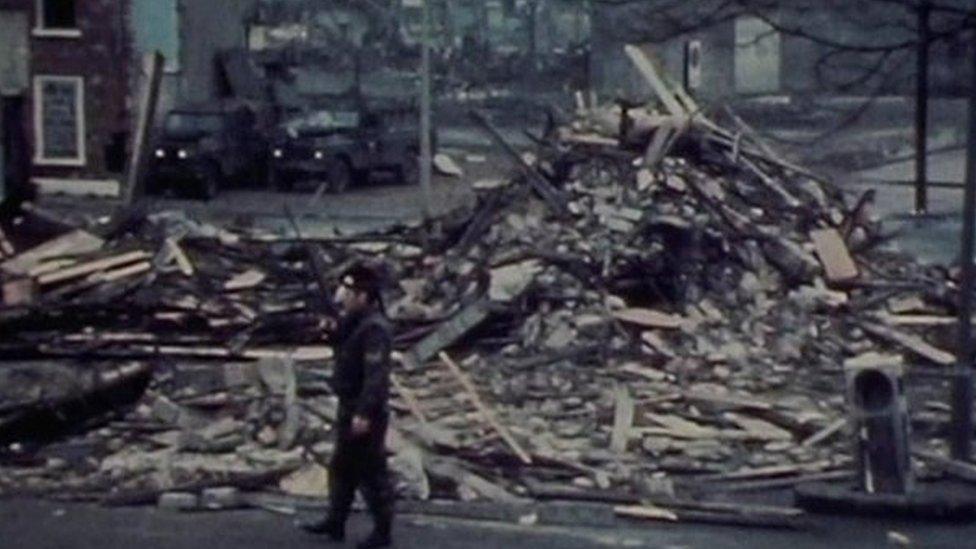
The loyalist paramilitary attack at McGurk's Bar in Belfast killed 15 people in December, 1971
Relatives of some people murdered in a bomb attack at McGurk's Bar have been told the case merits new inquests.
They said the attorney general told them new inquests were "advisable" after new evidence was uncovered.
The attack at McGurk's Bar in Belfast on 4 December 1971 was carried out by the Ulster Volunteer Force (UVF) and killed 15 people.
The families of those killed have said that they suspect British armed forces had advanced knowledge of the attack.
One man was convicted of all 15 murders in 1978.
The Attorney General directed that fresh inquests be held into the deaths of Edward and Sarah Keenan on 18 April.
A solicitor for the Keenans said it would mean an inquest for all the victims.
However, under the terms of the Legacy Act, no further Troubles-era inquiries or civil cases can be heard from 1 May.
The deadline included in the legislation will end all future civil litigation and inquests into deaths which occurred during more than 30 years of violence in Northern Ireland, known as the Troubles.
Prosecutions that are currently ongoing will continue to conclusion, but inquests that have already begun will end in May unless they have reached the point of delivering findings.
The legislation was opposed by all political parties at Stormont and is currently the subject of legal challenges.
Investigation 'incomplete'
Attorney General Dame Brenda King has written to the family of Edward and Sarah Keenan.
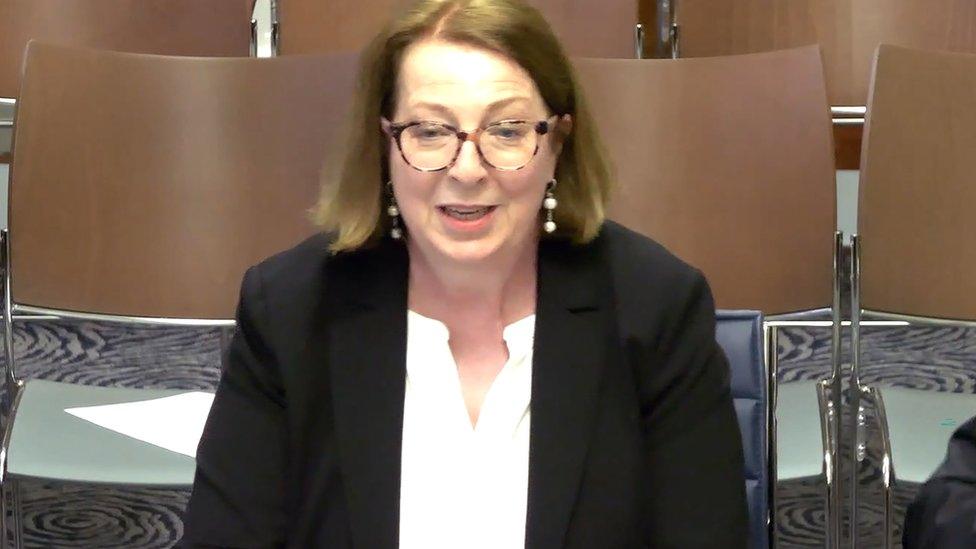
Dame Brenda King said "it is advisable to order a new inquest"
The Keenan family said Dame Brenda said she had "considered the submissions and documents provided" and "decided that it is advisable to order a new inquest into their deaths".
"Investigation of the actions or inactions of the Army in the period before the bombing occurred is incomplete," the letter stated.
Dame Brenda wrote that it was "apparent from the copies of the military logs shared with the attorney that there were military observation posts near to the area where the Keenans met their deaths".
"The attorney considers that an inquest would provide a forum in which the actions of the Army prior to the bombing could be explored," the letter added.
Grandson uncovered evidence
In the immediate aftermath of the attack, the IRA was wrongly blamed for the bombing, but that allegation was later disproved.
In 2011 the Police Ombudsman found there had been no collusion between the Royal Ulster Constabulary and loyalist paramilitaries, but concluded there was investigative bias towards blaming republicans.
New evidence was submitted to the attorney general by Ciarán MacAirt, whose grandmother Kathleen Irvine was murdered in the attack and whose grandfather John was badly injured.

Ciarán MacAirt submitted new evidence to the attorney general concerning the bombing
In a statement, Mr MacAirt said he had discovered the evidence "through archive research in public records and targeted requests via the Freedom of Information Act".
He said said the families would "continue to fight for equal access to due process of the law".
Gerard Keenan, who was 13 when the bombing killed both of his parents, welcomed the attorney general's letter.
But he said a fresh inquest was "long overdue" and the McGurk's Bar relatives had been "fighting for too long" to overturn the original verdicts.
"All the families have campaigned with great dignity for over 52 years for scraps of truth and justice from the British state," he said.
"Like many other bereaved families now, though, we face the reality that the British state will not allow this inquest to go ahead."
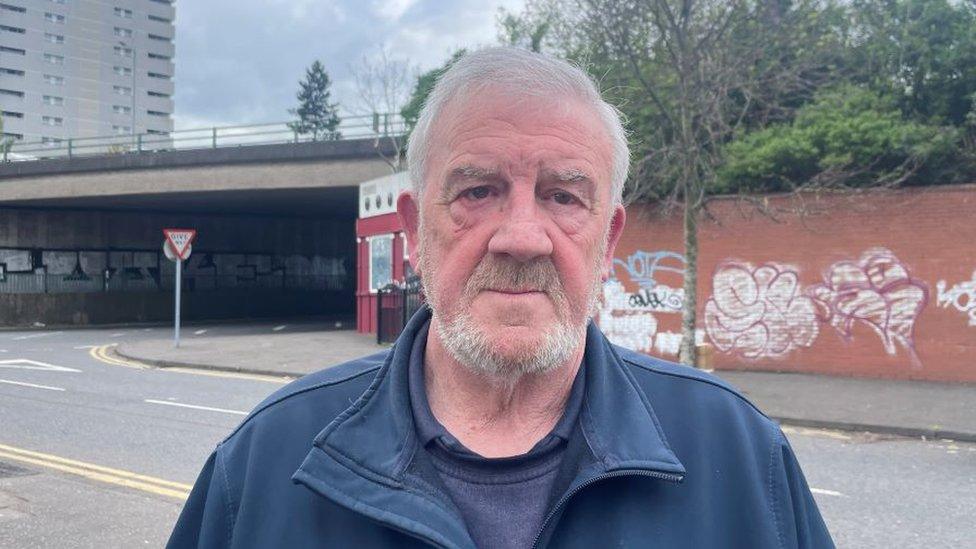
Gerard Keenan was 13 when the bombing killed both of his parents


The McGurk's Bar case joins a list of Troubles' inquests which will not beat the May 1 deadline.
The exact numbers of cases will become clearer next week - but it is likely to be several dozen and, some, like McGurk's, involve multiple deaths.
Inquests which have neither opened nor concluded can be referred by families to the new legacy body, and it will take them on.
The body is called the Independent Commission for Reconciliation and Information Recovery (ICRIR).
There, the inquests will become what's known as Enhanced Inquisitorial Proceedings (EIP).
The ICRIR has promised no unnecessary delays in dealing with them - its chief commissioner, Sir Declan Morgan, will produce findings in each case.
The High Court has ruled that the ICRIR is capable of effective, independent investigations.
But the question is: Will families have enough faith in the alternative to pursue that option?
Or will they hope a future Labour government repeals or amends the Legacy Act and allows Troubles' inquests to take place?

New inquest could 'set record straight'
Solicitor Niall Ó Murchú, who represents the Keenan family, said the original inquest which took place a year after the bombing was "very perfunctory" and "didn't really examine what had gone on".
He told the BBC's Good Morning Ulster programme that the original coroner's court recorded an open verdict because of the amount of disinformation which had been spread about the bombing.
"In other words they left it open that they didn't know who was responsible," Mr Ó Murchú explained.
He said the victims' families were continuing to fight for a fresh inquest because it is "the main platform to have the record set straight, for them to get some measure of truth and public recognition and accountability for what actually happened".
The solicitor added: "I do fully accept that the way this [Legacy Act] legislation is worded looks like it's going to bring the shutters down completely.
"Now having said that, there's also other legal challenges to this legislation and we don't really know what way those things will pan out either, so some parts of this are up in the air."
Solicitor Christopher Stanley, who represents six other families, said they had written to the attorney general to request she extends the direction for an inquest to include those other victims.
"We have worked tirelessly to secure truth, justice and accountability to resolve the many questions that persist around the bombing," he said.
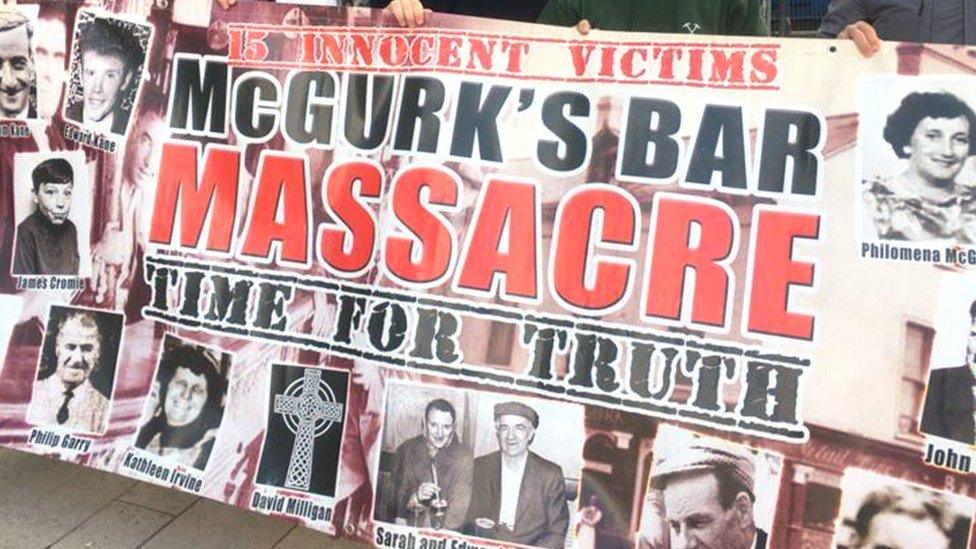
A solicitor said the victims' families were continuing to fight for a fresh inquest
Under the new legacy arrangements from 1 May, investigations into Troubles' deaths, including those which were to be the subject of inquests, can transfer to the Independent Commission for Reconciliation and Information Recovery (ICRIR).
The ICRIR's aim is to "provide information to victims, survivors and their families about Troubles/conflict-related deaths and serious injury and promote reconciliation".
Controversially, people accused of killings will not be prosecuted if they speak to ICRIR investigators and make their knowledge public - a measure which was strongly opposed by victims who are seeking justice.
Related topics
- Published29 June 2022
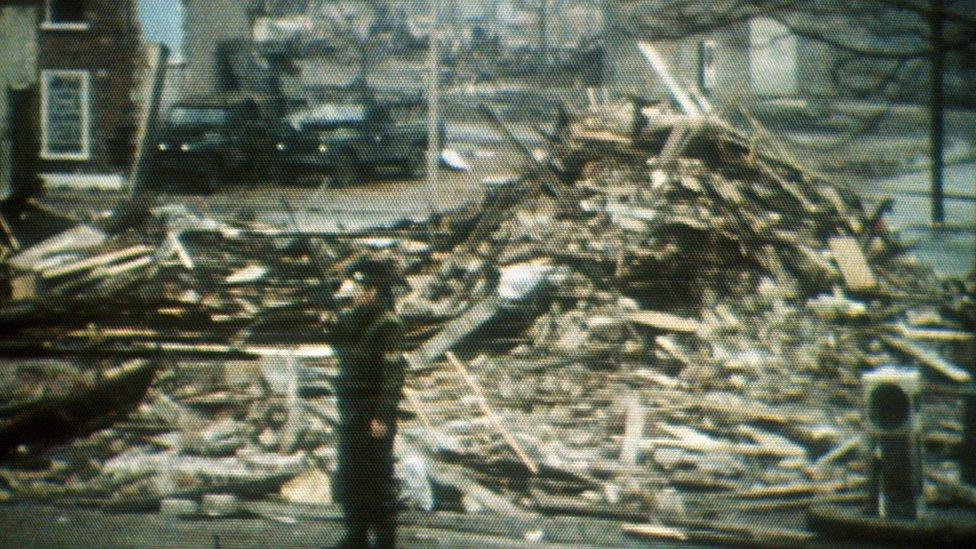
- Published12 December 2021
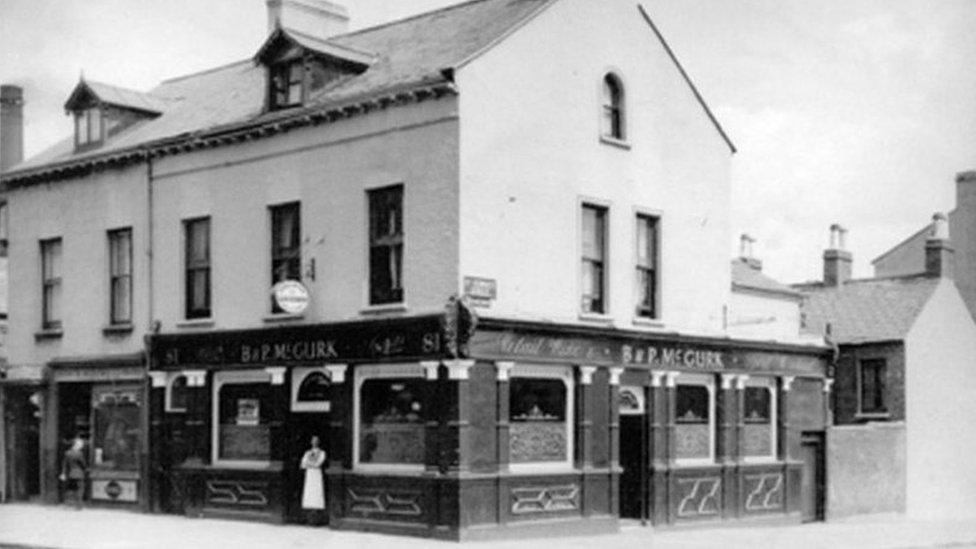
- Published21 February 2011